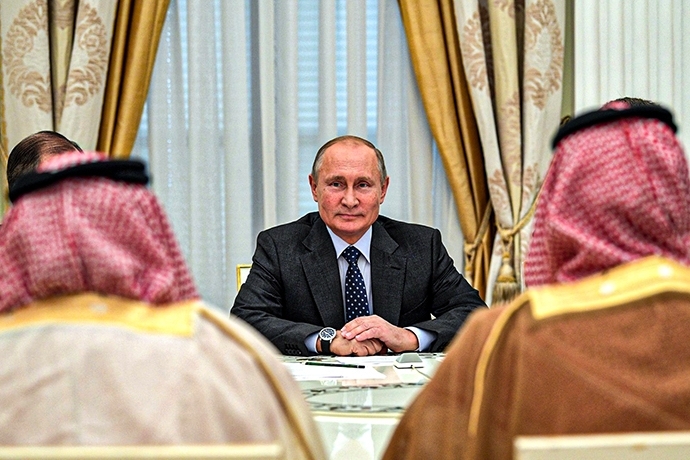
What Would a Russian Victory in Ukraine Mean for the Middle East?
Most analysis of Russia’s war in Ukraine has focused on the implications for Europe as the war’s location, participants and origins are all European. Commentary that looked beyond Europe has usually paid more attention to Russia’s relations with major powers like China and India than to how the war affects nearer neighbors in the Middle East. Nevertheless, how this war ends will have very important consequences for both the Middle East and American influence in the region.
Russian commanders are now applying in Ukraine the painful and bloody lessons they learned in Syria. As in Syria, Russia is relying heavily on the ground forces of its local allies, which in this case are the armies of the Donetsk and Luhansk People’s Republics in Ukraine’s eastern Donbas region. Through a combination of artillery bombardments, air strikes, missile attacks, and infantry assaults, the Russians are achieving slow, steady, grinding progress. They have launched devastating attacks against Ukraine’s civilian and military infrastructure, including fuel depots, airfields, and rail lines. In conquering Mariupol, they destroyed or captured much of Ukraine’s best ground forces, including the elite Azov Battalion.
By some measures, Russia has already won the war. From Kharkiv province in the northeast to Mykolaiv province in the southwest, Russian forces have methodically taken control over vast stretches of eastern and southern Ukraine. Russia and its local allies now control nearly all of the Donbas region. For the first time since the collapse of the Soviet Union, Russia has a land corridor to the Crimean Peninsula and control over Crimea’s water supply. The Sea of Azov is once more a Russian lake. For any strategic planner, these are highly significant developments.

Moscow fully intends to annex all of the territories it now holds. Local military administrations have already been set up with Russian flags and state symbols replacing those of Ukraine. Russian food supplies, humanitarian aid, and passports are being generously distributed. Russian television, radio, banking, and Internet links have been established. Preparations are underway for plebiscites requesting admission into the Russian Federation.
Moscow’s territorial gains in Ukraine are so vast that it could comfortably halt and declare victory. Nevertheless, Putin may still advance on Kharkiv in the northeast and Odesa in the southwest. This would eliminate Ukraine’s coastline making the Black Sea another Russian lake. Capturing all of Kharkiv, Odesa, and the Donbas might well turn Putin’s ambitions again towards Kyiv. To be sure, this first Russian capital continues to hold enormous symbolic importance for Russia’s increasingly vocal nationalists.
A Russian strategic success of such magnitude would expand Moscow’s influence across the Middle East. From the Black Sea to the Persian Gulf, Russian prestige would soar. Syria is already a Russian protectorate which has security implications for Israel. Egypt, Saudi Arabia, and the UAE already have military ties with Moscow which they would certainly seek to strengthen. Russian arms sales in the region would grow with Moscow’s military success. Energy cooperation between Russia and the Arab states of the Gulf would likely deepen. Finally, Turkey has fought many wars with Russia and currently has a complex relationship with Moscow; one it would have to adjust to the new reality of a vastly stronger Russian presence along its northern and southern borders.
Substantial Western military support for Ukraine has slowed, but not stopped Russia’s advance. In weighing the value of further military assistance to Kyiv against a negotiated settlement, it may be worth reflecting on how continued Russian victories will reverberate in the Middle East. Avoiding that outcome through negotiations might prove more successful than seeking to regain lost territory; a reconquest that is unlikely to succeed in any event without much greater Western involvement.

